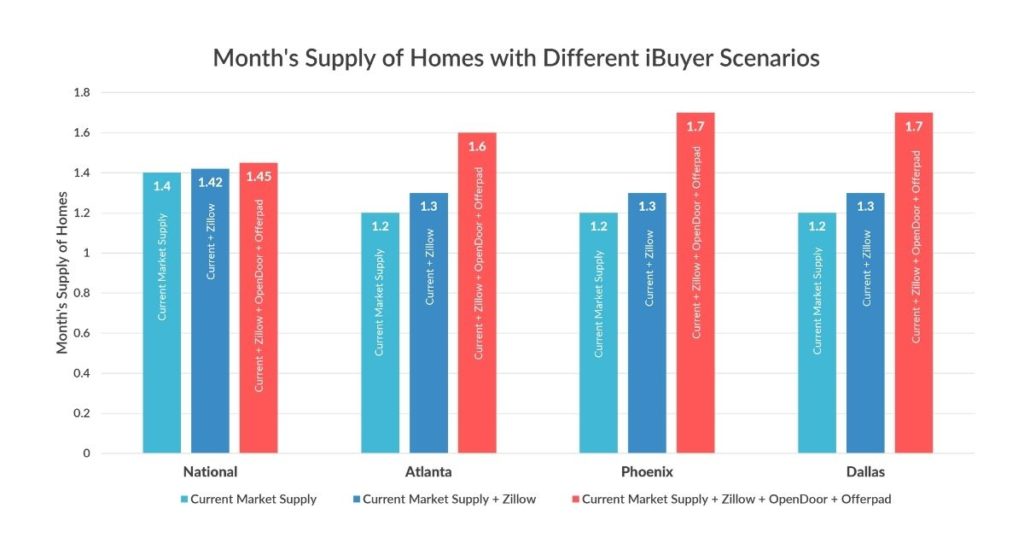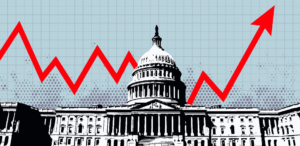Eric P. Fox – Chief Economist, Veros Real Estate Solutions
Srinivasa V. Bhupathiraju – Senior Data Engineer, Veros Real Estate Solutions
After last week’s shock waves when Zillow announced the demise of its home-flipping business, questions have begun to swirl around its impact on the residential real estate market and on the stability of remaining iBuyers such as Opendoor or Offerpad.
The key question is whether Zillow’s failure in this business and other iBuyer potential difficulties could cause downward pressure on real estate prices. To assess this question at a national level, Veros queried its property databases to determine how many homes could be hitting the market from Zillow. These are homes that show Zillow as the purchaser of record which have not yet been sold. There are approximately 11,000 homes in this category. As a worst case assumption, if all of these homes today flooded the market, the U.S. month’s supply of homes would increase from 1.4 months to 1.42 months. This wouldn’t be noticeable at all and would have virtually no impact on house prices.
What if other large iBuyers suddenly decided to unload all of their active holdings like Zillow? If OpenDoor and OfferPad active holdings were added to Zillow’s, there would collectively be over 33,000 homes in this category. Again, as a worst case assumption, if all of these homes hit the market today, the U.S. month’s supply of homes would increase from 1.4 months to 1.45 months. Again, even under these pessimistic assumptions, if there were a collapse of three large iBuyers, there would be very little impact on prices based on such a small change in month’s supply of homes.
If attention is instead focused to markets having the largest number of iBuyer active holdings, the most significant market impact could be assessed. Atlanta, Phoenix, and Dallas metro areas have approximately 4400, 4300, and 3000 active iBuyer holdings, respectively. If as a worst case assumption all of these hit these markets in the form of increased supply today, Atlanta would increase from 1.2 months of supply to 1.6 months, Phoenix would go from 1.2 months to 1.7 months, and Dallas would go from 1.2 months to 1.7 months. So even here with the assumption of a complete iBuyer failure like Zillow for other large iBuyers, though the impact of 0.5 additional months of supply would be noticeable and perhaps put a slight slowdown in each market, there is nothing in the data to suggest that its impact would be large enough to cause a market to crash like occurred back in 2007.








